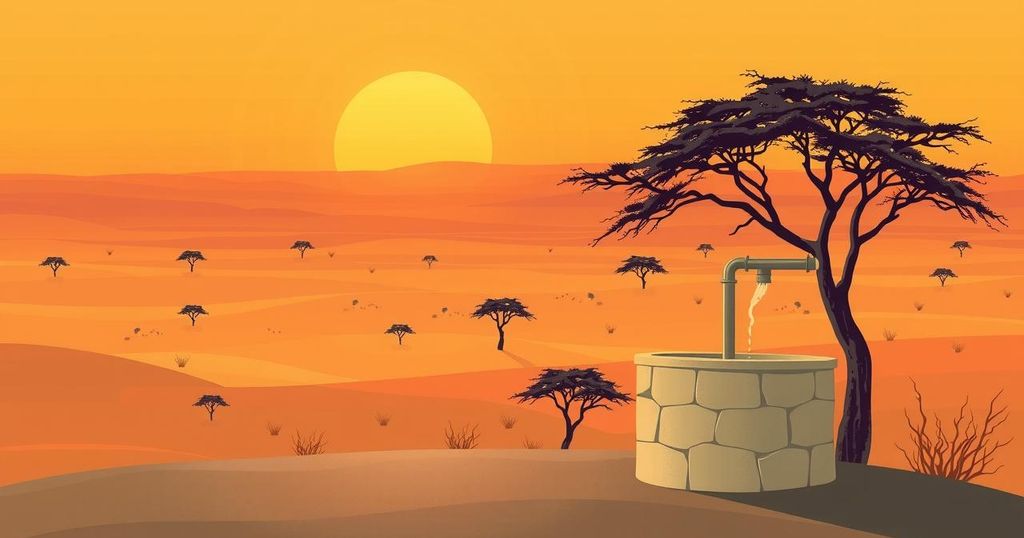Southern Africa has faced a humanitarian crisis in 2024 due to severe drought, floods, and disease outbreaks. Approximately 22 million people require urgent aid, with food insecurity impacting around 45 million individuals. Countries declared national disasters, and water shortages have heightened health risks. The crisis has resulted in significant displacement, prompting humanitarian responses amid ongoing funding challenges.
In 2024, Southern Africa faced unprecedented humanitarian challenges, exacerbated by the worst mid-season dry spell in over a century, alongside floods, cyclones, disease outbreaks, economic upheavals, and ongoing conflicts. Approximately 22 million individuals were in urgent need of humanitarian aid. This crisis was significantly driven by a severe El Niño event, resulting in the region experiencing its most intense drought on record, notably affecting food security for approximately 45 million people across the area.
Countries such as Botswana, Lesotho, Malawi, Namibia, Zambia, and Zimbabwe declared national disasters due to the drought, which had dire consequences for child nutrition, with over 4 million children under five years of age requiring treatment for stunting. Furthermore, water scarcity, worsened by climate-induced shocks, contributed to heightened risks of waterborne diseases; the region saw the worst cholera outbreak in a decade, resulting in approximately 70,000 cases and 1,374 deaths, along with other disease incidents such as Mpox and measles.
Four tropical storms/cyclones caused significant destruction, leading to casualties, displacements, and impacting around 610,000 individuals. Noteworthy weather events included Tropical Cyclone Belal in January 2024, Severe Tropical Storm Filipo in March, Cyclone Gamane, and Cyclone Chido in December, which affected multiple countries including Madagascar, Mozambique, and Malawi.
Additionally, ongoing climate shocks, economic difficulties, and conflict in northern Mozambique contributed to a displacement crisis, with the region housing 829,000 internally displaced individuals and 676,000 refugees. In response to these urgent needs, humanitarian organizations increased their efforts in resource mobilization and crisis response, launching several Flash Appeals for affected countries such as Malawi, Mozambique, Madagascar, Zambia, and Zimbabwe. However, persistent funding shortages hindered adequate response efforts.
The humanitarian crisis in Southern Africa in 2024 is rooted in a combination of severe climate events, health crises, and socio-economic challenges. The strong El Niño phenomenon has significantly influenced weather patterns, leading to extreme droughts and flooding. This has resulted in widespread food insecurity, malnutrition among young children, and increased incidence of waterborne diseases. Countries in the region have been compelled to declare national states of disaster due to these compounding crises, prompting a call for urgent assistance from humanitarian organizations.
In summary, the humanitarian landscape in Southern Africa as of January 2025 underscores a critical need for effective interventions in response to climate-induced disasters, food insecurity, and health crises. The region continues to grapple with the repercussions of these challenges, necessitating coordinated efforts from humanitarian entities, governmental bodies, and the international community to alleviate suffering and provide vital support to those affected.
Original Source: reliefweb.int






